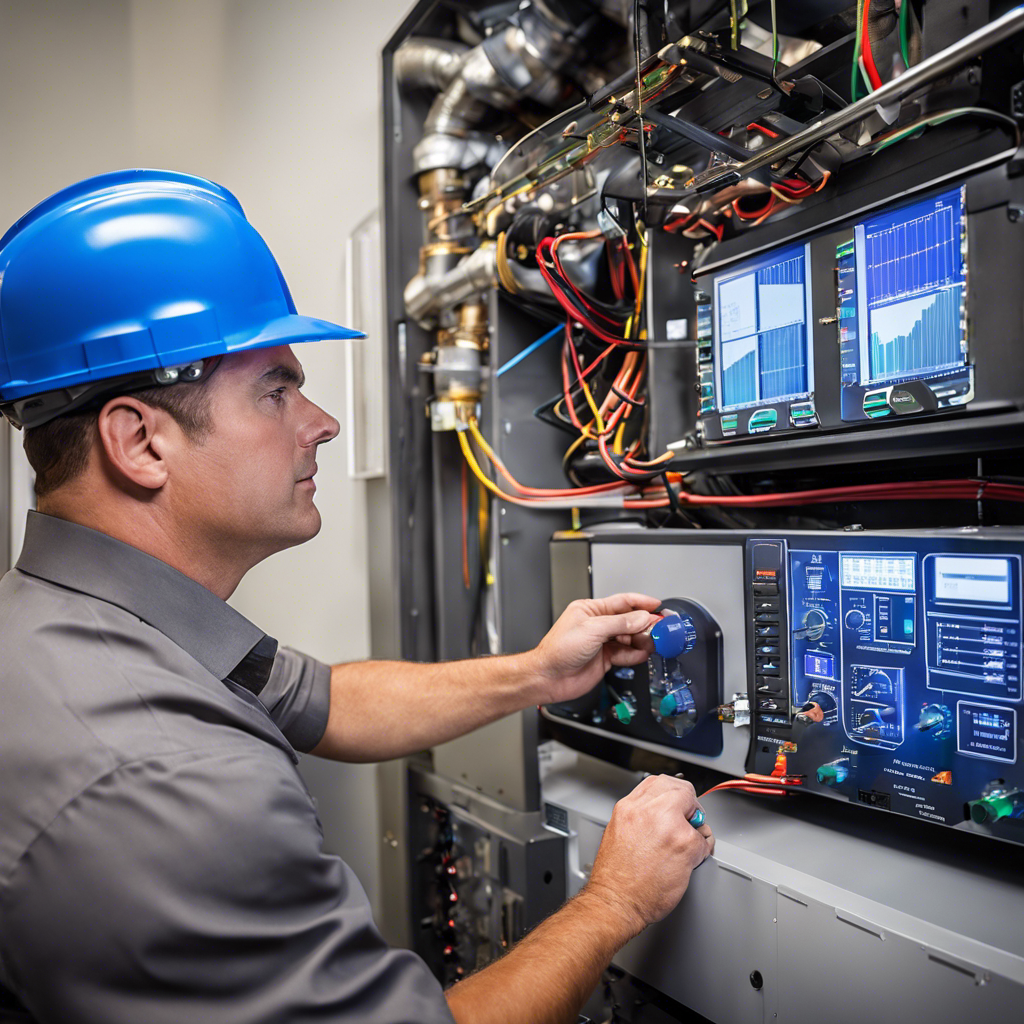Are you tired of watching your hard-earned money slip away like sand through your fingers? Well, imagine if you could stop this financial leakage in its tracks and start saving more for your business.
By investing in HVAC energy audits for your Tulsa business, you can uncover hidden energy inefficiencies and make smart decisions that will significantly impact your bottom line.
But that’s not all. These audits also offer a host of other benefits that will leave you wondering why you didn’t take action sooner.
So, are you ready to take a closer look at how HVAC energy audits can revolutionize your business and pave the way to a more efficient and sustainable future?
Key Takeaways
- HVAC energy audits help businesses lower utility bills by identifying inefficiencies and implementing energy-saving strategies.
- Improving HVAC system energy efficiency through upgrades and sealing air leaks can lead to long-term savings and contribute to a more sustainable operation.
- Regular maintenance and proper care of HVAC systems can extend their lifespan, prevent breakdowns, and reduce strain on components.
- Proper indoor air quality is essential for a healthy environment, and HVAC audits can help businesses achieve this through well-designed ventilation systems and high-quality air filters.
Lower Utility Bills
Lower your utility bills by scheduling an HVAC energy audit for your Tulsa business.
An energy audit is a comprehensive assessment of your heating, ventilation, and air conditioning systems to identify energy saving strategies and cost saving measures.
During the audit, a professional technician will inspect your HVAC equipment, identify any inefficiencies or areas for improvement, and provide recommendations to optimize energy usage and reduce utility costs.
By implementing these recommendations, you can significantly lower your energy consumption and save money on your monthly bills.
Energy saving strategies may include upgrading to more efficient equipment, improving insulation and sealing, optimizing thermostat settings, and implementing preventative maintenance plans.
Taking proactive steps to reduce your energy usage not only benefits your bottom line, but also helps to conserve resources and protect the environment.
Schedule an HVAC energy audit today and start enjoying the benefits of lower utility bills.
Improved Energy Efficiency
To further optimize your HVAC system and maximize energy savings, consider focusing on improving its energy efficiency. By doing so, you can achieve significant cost savings and reduce energy consumption.
HVAC systems that aren’t energy efficient can result in higher utility bills and unnecessary energy waste. Improving energy efficiency involves various measures such as upgrading to energy-efficient equipment, sealing air leaks, and enhancing insulation.
Investing in energy-efficient technologies and practices can help your business achieve long-term savings by reducing energy consumption and lowering utility bills. Additionally, improving energy efficiency can contribute to a more sustainable and environmentally friendly operation, which can positively impact your business’s reputation and customer loyalty.
Conducting an HVAC energy audit is a valuable step towards identifying areas for improvement and implementing energy-saving strategies.
Extended HVAC System Lifespan
Regular maintenance and proper care can significantly extend the lifespan of your HVAC system. By implementing preventive maintenance measures, you can ensure that your HVAC system operates at its peak performance for longer periods, resulting in cost savings in the long run.
Preventive maintenance includes regular inspections, cleaning, and lubrication of key components, as well as timely repairs of any issues identified. These measures help to prevent small problems from escalating into larger, more expensive ones.
Additionally, regular maintenance ensures that your HVAC system operates efficiently, reducing the strain on its components and minimizing the risk of breakdowns. With an extended lifespan, you can avoid the cost of premature replacement and enjoy continued comfort and reliability from your HVAC system.
Enhanced Indoor Air Quality
Improving indoor air quality is essential for maintaining a healthy and comfortable environment within your business premises.
Proper indoor air circulation and effective filtration systems play a crucial role in achieving this goal.
Indoor air circulation ensures that fresh air is consistently distributed throughout your space, reducing the concentration of pollutants and allergens. This can be achieved through the installation of well-designed ventilation systems that provide a constant flow of clean air.
Additionally, filtration systems are essential for removing airborne particles such as dust, pollen, and bacteria. High-quality air filters can effectively capture these contaminants, preventing them from circulating in your indoor environment.
Environmental Sustainability
By implementing environmentally sustainable practices, you can further enhance the indoor air quality of your business premises while minimizing your ecological footprint.
One way to achieve this is by reducing your carbon footprint through the use of renewable energy sources. Renewable energy sources, such as solar or wind power, offer a cleaner and more sustainable alternative to traditional fossil fuel-based energy.
By installing solar panels or wind turbines, you can generate your own electricity on-site, reducing your reliance on the grid and decreasing your carbon emissions.
Additionally, investing in energy-efficient HVAC systems and insulation can help reduce energy consumption and minimize the environmental impact of your business operations.
Frequently Asked Questions
How Long Does an HVAC Energy Audit Typically Take to Complete?
An HVAC energy audit typically takes around 2-4 hours to complete. You can prepare by gathering utility bills and making a list of any comfort issues. Hiring a professional ensures accurate results and identifies energy-saving opportunities.
What Are Some Common Indicators That a Business May Benefit From an HVAC Energy Audit?
If you notice inconsistent temperatures, high energy bills, or frequent HVAC repairs, these are indicators that your business may benefit from an HVAC energy audit. A thorough audit can identify energy inefficiencies and help you save money.
Are There Any Tax Incentives or Rebates Available for Businesses That Undergo an HVAC Energy Audit?
You may be wondering if there are any tax incentives or rebates available for your business if you undergo an HVAC energy audit. The answer is yes, there are financial benefits, including potential tax incentives and rebates, for businesses that invest in HVAC energy audits.
Can an HVAC Energy Audit Help Identify Potential Safety Hazards Related to the HVAC System?
Yes, an HVAC energy audit can help identify potential safety hazards related to your HVAC system. It can pinpoint issues like gas leaks, faulty wiring, or improper ventilation, ensuring a safer environment for your business.
How Often Should a Business Schedule an HVAC Energy Audit to Maintain Optimal Energy Efficiency?
To maintain optimal energy efficiency, you should schedule an HVAC energy audit for your business regularly. It helps identify areas where you can improve energy efficiency, saving you money and reducing your environmental impact.


